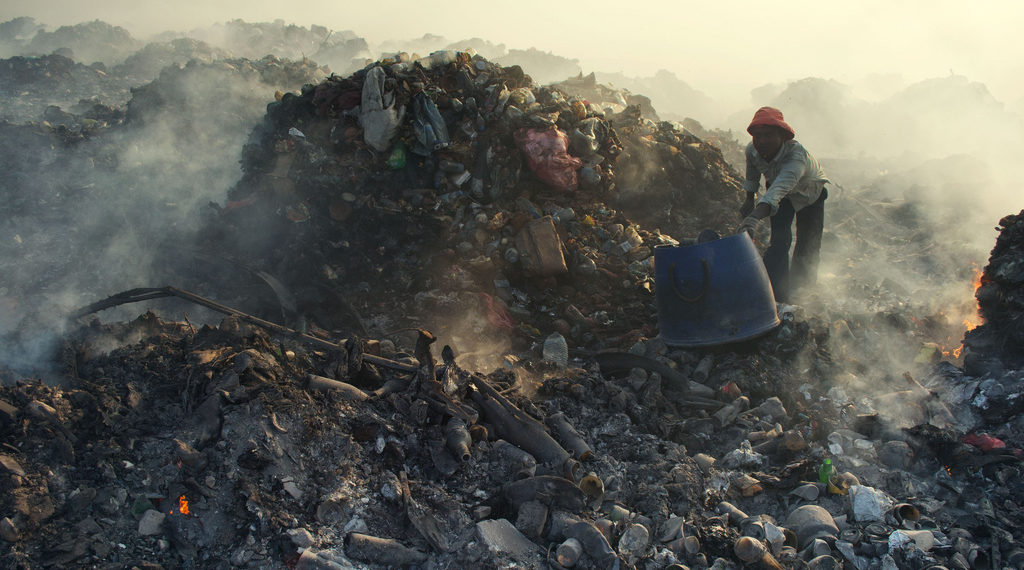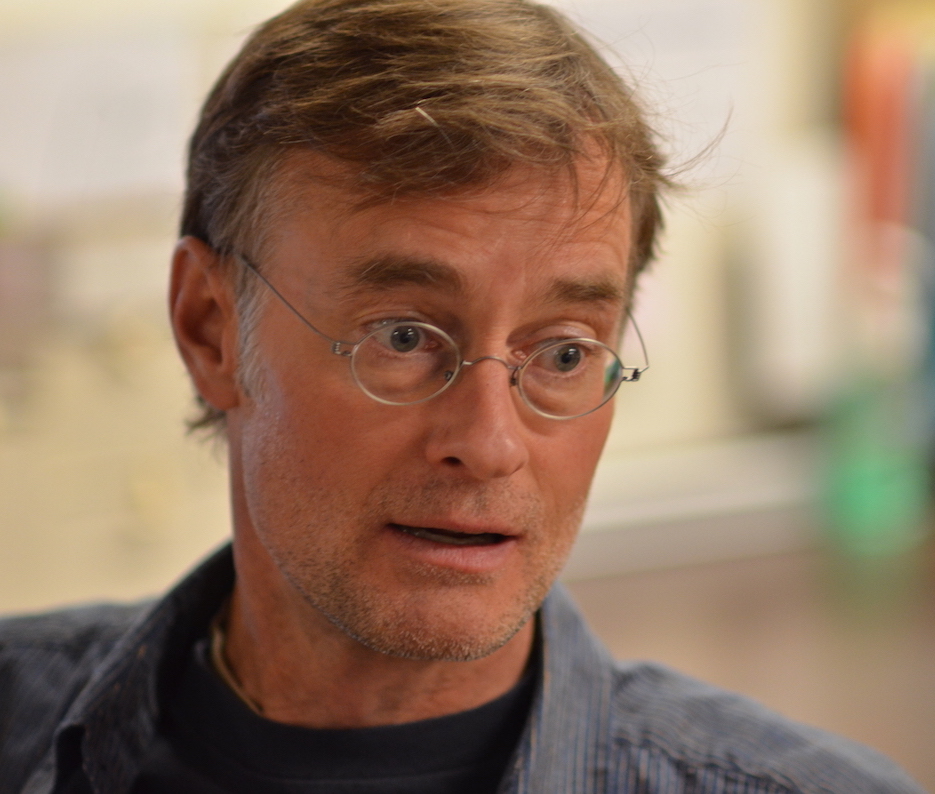Introduction to the Sustainability & Ethnography in Business Series, Mike Youngblood, Editor

Sustainability—we’re hearing this word a lot these days, even in business (if not, depressingly, in Trump Tower). It’s probably something readers of this post all generally support, and it’s definitely something we’re all connected to in one way or another. Whether we work in tech, consumer goods, education, government, or any other field, it’s pretty easy to see how the products, services, and organizations we serve affect larger social and environmental issues.
For most of us in the EPIC community, however, sustainability isn’t in our job descriptions. So how should we understand and act on this issue? What are our perspectives, capabilities, opportunities, and responsibilities with respect to sustainability? Are we actively addressing sustainability in our work, or is it properly “someone else’s job?”
This post introduces an EPIC discussion on sustainability. Over the next few months we’ll encourage and publish perspectives and stories from people excited about the challenges and opportunities of using our powers to promote sustainable ways of living and working. Our hope is to foster an ongoing conversation that includes not only those who have thought a lot about this subject, or who have a track record working on it, but also those who are relatively new to the idea or aspire to play a greater role.
The Meaning of Sustainability for the EPIC Community
Like everything cultural, the very idea of sustainability is complicated. For some of us practitioners, sustainability may mean fostering change that has enduring value for our stakeholders. For others, it may mean asking our stakeholders to make sacrifices for the common good. We might tend to see it as a business risk or opportunity, or as a social challenge, or as an environmental issue—or some combination of these.
Textbook definitions look something like this: “Sustainability is an approach to acting in the world in a way that consumes resources and produces waste at a rate that could be continued indefinitely.”
Sustainability, in this sense, is about how we create, how we consume, and what happens to things when they’re done doing what we designed them to do. It’s about the cultures and behaviors that we promote, or sustain, or call into question in our work.
How much of what happens in our economies and our professional practice is truly sustainable? How do you define sustainability in your own work?
The Meaning of Sustainability for Others
The definition above is about as etic as it could be. In the thoughts and lives of our clients and research participants, sustainability has meanings that are more fluid and multivocal, more social and emotional. Countries, industries, communities, and even families may be split on how sustainability aligns with or challenges their values, worldviews, and ways of living.
The EPIC2013 paper by Dan Lockton and colleagues on energy use, for example, shows how the emic meaning of energy consumption is not about “using energy” per se but more about end goals and values like caring for family and creating a comfortable, welcoming home. At EPIC2011 Michael Donovan explored the meaning and values in the locavore food movement. He suggests that advocacy for sustainable food systems embodied in the movement is, for locavore adherents, only partially about sustainability and at least equally about frustration with the generic, impersonal experience of the mainstream food economy. Inspired by insights such as these we want to know: What do sustainability issues really feel like in people’s lives? How could a thick description of sustainability and its interconnections with other aspects of culture help us identify constraints and opportunities to promote more sustainable practices?
And when we do this work, does objectivity and empathy for the cultural lives of others render us neutral on sustainability? One of many cultural truths overwhelmingly reinforced during the 2016 US presidential election cycle is that people on every side of every issue tend to be deeply ethnocentric about their own view of the world. As ethnographers, we try to overcome our own ethnocentricity by embracing the axiom of cultural relativity—but does relativity preclude us from actively taking a stand on critical issues like sustainability? Can we identify ways to validate and empathize with opposing perspectives and still find shared pathways forward?
Our Unique Position to Contribute to Sustainability
In the best ethnographic tradition, our community of practitioners is deeply reflexive—we scrutinize and question our own presence and effect in the work we do. How do our theory and our practice inform our self-perceptions of our work and who we are as a community? In their EPIC2009 paper, Treitler and Ramagosa pointed to a very real dilemma many of us face: although we come into this work with a desire to do good, our drive to innovate contributes to a proliferation of goods and services that’s “difficult to manage for a healthy society and earth.” It’s quite true that, for many of us, our practice helps our clients churn out greater volumes of resource-burning products, services, and experiences. How can we reconcile this dilemma? How could our theory and our practice inform a less conflicted and more earth-conscious role for ethnographers in industry without turning our backs on important work that we love to do?
As ethnographers, we bring a nuanced understanding of culture into our work. We understand that culture is “made” rather than “natural,” and we know that people’s cultural lives are a complex whole rather than a random collection of isolated bits and pieces. These perspectives lead us to question norms, look for systemic patterns and connections, tack between the big picture and the fine details, and consider perspectives and challenges from multiple standpoints. In her 2016 contribution to Perspectives, Melea Press describes how our ethnographic perspective can help clients tell more powerful stories that make their sustainability initiatives resonate with diverse, often skeptical, stakeholders. How else can we apply our ways of thinking and doing to the issue of sustainability?
We have at least one more distinctive capability. We’re fortunate that, due to the nature of our work, many of us have real influence over what actually happens in industry. We have trusted relationships with leaders in R&D, strategy, marketing, and other thought-leading disciplines—not only in big, established corporations that dominate their industries but also in nimble startups that inherently seek to redefine the ways things are done. How can we leverage our community’s influence to promote sustainability through our work and the work of our clients?
Do you see other perspectives, skills, or influence we can bring to bear?
Examples We Can Learn From
We can probably agree that humanity’s current pattern of consumption and waste production isn’t viable. Something has to give.
For those of us watching for signs of change, we may be either encouraged or frustrated depending on our sense of urgency. In either case, we can see that there is actually a lot of good stuff happening. There are surprising alliances, such as Patagonia and Walmart teaming up in an effort create an industry-standard sustainable labeling system for apparel. As the Trump administration seems poised to dismantle existing government-led initiatives, and as market incentives in favor of sustainable practices seem to be increasing in some areas, industry-led initiatives like this may emerge as a key opportunity space for this work.
Many state and city governments are pursuing sustainable innovation in ways that deadlocked federal government hasn’t. The city of San Francisco, for example, is one of several in the US actively taking a lead on transitioning city infrastructure to support electric vehicles while most of the US remains sluggish on this front.
And there are thoughtful initiatives to reexamine the systemic impact of a wide range of day-to-day practices in large organizations, such as the project described by J.A. English-Lueck and Miriam Lueck Avery at EPIC2014 assessing the impact that employee meal benefits at giant companies like Google have on the larger food system.
What else do we see happening in the vanguard of sustainability theory and practice within industry or among consumers? Can you share some other stories and examples of things you find exciting and inspiring? Can you tell us about your aspirations for how sustainability might be a bigger part of your organization or your work?
Providing Leadership in Sustainable Design
There is much that we in the EPIC community understand about the world but, alas, a great deal of our insight is either cloistered in academia or locked up in the proprietary vaults of our clients. Now more than ever, there is a pressing need for anthropologists to speak to a wider audience and share what we know. This is especially critical as we watch so many affronts to sustainability become normalized in media and popular culture. This normalization pertains not only to our unsustainable, day-to-day personal practices as consumers and producers, but also massive, global-level threats such as climate change. Yes, sustainability may have been absent from the 2016 US presidential debates, but it’s bound to be an increasingly hot topic in the months and years ahead. How will we contribute to the public conversation? How will we engage our organizations, clients, colleagues and other audiences on issues of sustainability?
Let’s get the conversation going. We’re eager to hear from colleagues both inside and outside the EPIC community. Would you like to contribute to the conversation? Do you know somebody else who should? Add your comments below or contact us to propose an article. Please let us know. In the meantime, watch for upcoming posts on this topic.
Articles in the Sustainability and Ethnography in Business Series
Navigating Relativism and Globalism in Sustainability, Caroline Turnbull
Place Making and Sustainability, Michael Donovan
Radical Design and Radical Sustainability, Thomas Wendt
References
Photo: “Thilafushi Kuni Gondu – God’s dirty little secret” by Hani Amir (CC BY-ND 2.0) via flickr.
Donovan, Michael, 2011. The Luminosity of the Local. Ethnographic Praxis in Industry Conference Proceedings 2011, pp. 277–284.
English-Lueck, J.A. and Miriam Lueck Avery, 2014. Corporate Care Reimagined: Farms to Firms to Families. Ethnographic Praxis in Industry Conference Proceedings 2014, ISSN 1559-8918.
Lockton, Dan, Flora Bowden, Catherine Greene, Clare Brass, and Rama Gheerawo, 2013. People and Energy: A Design-led Approach to Understanding Everyday Energy Use Behaviour. Ethnographic Praxis in Industry Conference Proceedings 2013, pp. 348–362.
Press, Melea, 2016. Sustainability Initiatives Succeed with Good Storytelling. EPIC Perspectives, March 14, 2016.
Treitler, Inga and Frank Romagosa, 2009. Ethnographer Diasporas and Emergent Communities of Practice: The Place for a 21st Century Ethics in Business Ethnography Today. Ethnographic Praxis in Industry Conference Proceedings 2009, pp. 50–58.
 Mike Youngblood is cultural anthropologist working at the intersection of human-centered design and social impact. His award winning book on political participation and social change in rural India, Cultivating Community, was published in 2016. mike@theyoungbloodgroup.com
Mike Youngblood is cultural anthropologist working at the intersection of human-centered design and social impact. His award winning book on political participation and social change in rural India, Cultivating Community, was published in 2016. mike@theyoungbloodgroup.com

0 Comments